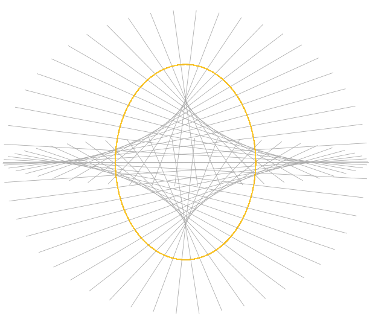Psychedelics and Reality:
It's Time for a Paradigm Shift
Chapter 5: What are Psychedelics?
Psychedelics 101 Series
Understanding the Fundamentals of Psychedelics
Estimated reading time: 7 min
July 1, 2023
Table of Contents
Having redefined the spectrum of substances, and explored terminology and pharmacology, you are ready to go beyond. Here we open up to new perspectives to break through frames to interpret psychedelics and it’s implications on reality in a more open way.
Opening up to non-Western perspectives on reality and psychedelics
In the exploration of the history of psychedelics in the first article of this series, it became clear that long before the Western understanding of psychedelics emerged, many cultures had profoundly understood and integrated them into their culture (cf. Article “History of Psychedelics“). Failing to consider their viewpoints would not only demonstrate a lack of respect. It would perpetuate the long-standing colonialist mindset of Western superiority in having the authority to define “objective reality”. Integrating alternative perspectives into the Western viewpoint could enable a more inclusive and transcendent understanding of these powerful compounds and our reality.
The start of that endeavor reveals the invisible barrier that prevents us from being open to alternative perspectives. The following part explores what may prevent us from being open to different interpretations of psychedelics from the perspective of philosophy of science.
The paradigm shift
One of the most influential philosophers of the 20th century, Thomas Kuhn, coined the term “paradigm shift” [1]. Charles Tart, one of the founders of the field of Transpersonal Psychology understood the “paradigm shift” as a perspectival or psychological shift in our way of understanding the world:
“A paradigm is the “natural” way of looking at things and doing things; it is the obvious “sensible” way to think about problems in its field.
You do not think about rebelling against something that seems like the natural order of the universe; you do not realize you are controlled by your concepts. We all have paradigms, and worldviews, about different areas of reality.
We have personal and cultural paradigms about economics, politics, religion, sexuality, aggression, and so on. And, almost all of these are implicit belief systems, sets of rules for interpreting things, thinking about things, acting on things, so we no longer know what the rules are that govern our reactions.” [2]
All significant breakthroughs are breaks with old ways of thinking.
— Thomas Kuhn
Western Scientific Duality & Reductionism
In the still currently prevailing Western scientific paradigm, people think of matter as an inanimate object to be studied through the lens of science by an objective agent. That is reflected in the way people go about science, assuming that a researcher is able to independently observe an “objective reality”. That is, a reality separate from the researcher and a reality that consists of matter. A philosophical position called “materialism”.
Hand in hand with this approach often goes a reductionist perspective: the assumption that understanding a complex object is possible through analysis alone – the separation of complex wholes into parts that can be separately analyzed and that those individual parts are the only things that really exist [3a]. Reductionism believes that understanding the components of an object and adding them together leads to ultimately understanding the whole.
Despite the great discoveries and benefits this approach has brought to humanity, we could open ourselves to the possibility that this places a limit on our ability to understand deeply, as it implies that knowing beyond the relationship of researcher and objective reality is not possible.
For example, reductionism takes for granted the principle of emergence [4a], where totally new properties arise from the combination of components that “make up the whole”.
A reductionist approach to understanding how the body works, would investigate the components. For instance, understanding how organs work, in turn looking at the workings of cells and going further down into molecules and so on. With the underlying notion that the further down there you go, the closer you get to a pure understanding. When you arrive “at the bottom”, you add all the pieces together and you understand the body [3b].
Professor Robert Sapolsky at Stanford explains that such a reductionistic approach works in simple systems like when fixing a car or a clock, but is limited in understanding complex systems, such as living systems.

“How do you have a cell that respirates, made up of molecules that do not respirate? Where does respiration come from?” [4b}
– Daniel Schmachenberger
Daniel Schmachenberger continues on to say: “In the fields of science that study emergence (..), it is considered the closest thing to magic that is actually a scientifically admissible term”.
Other cultures, and also previous iterations of Western culture, have developed different lenses on reality where for example consciousness or subjectivity was considered the “real” or “basic”/fundamental stuff in the universe, and matter secondary. They also had intuitions of the intrinsic interconnectedness of observing subjects with the objects they were interacting with. And they had a deep reverence for “wholes” or “the whole” and didn’t think you could understand everything better by cutting it down into its parts.
So while we are not arguing for example for simplistic animism, where stones might be considered alive. Or say that the view of psychedelics that indigenous communities have is superior to Western understanding, it is important to consider the full range of interpretive options when trying to understand psychedelics and their effect.
The aim is to clearly see the particularity of the modern Western lens that most of us use to make sense of reality, so as to be able to better see its limitations and to be truly open to exploring valuable alternative perspectives. This discussion will continue in the next article where we explore the brain on psychedelics and how it relates to the “hard problem of consciousness”.
For now, it is important to consider how, as a result of seeing reality as a separate object to be seen and studied through the lens of reductionist materialism, a separation between humans and nature is created in which we as humans put ourselves above nature. Nature is out there to be manipulated and used at our will to serve our individual or collective needs.
We create separation between ourselves and other individuals, and different collectives leading to in- and outgroup dynamics. Each self fighting for it’s needs rather than looking at the needs of the whole and how to meet those collectively in the most holistic way.
The separation is also between our minds and our bodies. We tend to look at our body as objects to be subjected to training, discipline and control.
This utilitarian view also extends to psychedelics and psychedelic plants: we view these as substances to be used and manipulated to serve our collective and individual needs of healing. It is not to say that it’s necessarily “wrong”. However, it’s important to be aware of this extractive mindset to create a shift into engaging with these plants with humility and gratitude.
“We never were separate from nature and never will be, but the dominant culture on earth has long imagined itself to be apart from nature and destined one day to transcend it. We have lived in a mythology of separation.”
― Charles Eisenstein, Climate: A New Story
An Indigenous paradigm
“Approaching ayahuasca research from both Indigenous perspectives and plant perspectives can provide an orientation for revealing our human centric and scientistic assumptions that are otherwise invisible.”
– Laura Dev
Amazonian shamans, native Americans and the Mazatecs hold a different paradigm [5]. In their views, plants are not mere objects, to be used and dominated. Rather, these psychoactive plants are seen as teachers, guides and spirit plants. They view them as beings with agency, intention and aliveness. Indigenous cultures see a connection between plants, people, and nature, believing that they all share a common origin and when that connection is recognized, healing occurs [6a] [7].
The leaders of indigenous peoples of the Amazon basin, responsible for preserving the spiritual traditions and knowledge of the sacred medicine of the yagé (ayahuasca) say:
“Yagé is not a hallucinogen and it is not a psychedelic plant. Yagé is a plant that has a living spirit and teaches us how to live in peace and harmony with Mother Earth.”
A close-minded Western response would see that paradigm as superstitious and primitive, based on an outdated religious and mythical belief system that we luckily overcame in the era of Enlightenment.
“When data which make no sense in terms of the (implicit) paradigm, whether it be scientific, cultural, or d-SoC, are brought to a person’s attention, the usual result is not a reevaluation of the paradigm, but a rejection or misperception of the data.”
– Charles Tart
Take a moment to understand the difficulties in seeing through our paradigm.
The aim here is not to try to establish either paradigm as superior. Rather it is to use this as an opportunity to see through our paradigm and arrive at a more inclusive and holistic understanding. Being open to other forms of knowing means exploring new ways of knowing. To understand the indigenous perspective, we can learn to see through their lens. By partaking in their rituals, following their diets, and being guided by their wise elders, perhaps we can discover previously unfamiliar knowledge.
“The shaman often talks by tales and by jokes. It is important that we also incorporate that modality of knowing.”
– Beatriz Labate, anthropologist [6b]
We have to do what it takes. To understand psychedelics, going beyond the Western perspective and integrating philosophy, metaphysics, and alternative perspectives is key. Through recognizing the invisible barrier that prevents us from being open to alternative perspectives. And being willing to undergo a paradigm shift in our way of understanding the world and reality.
Ready to take a peek inside the “Psychedelic Mind”?

Speaking about exploring alternative perspectives, let’s take a look inside “The Psychedelic Mind” and dive into a first-person perspective and the psychological mechanisms of action.
Join us for the journey in the next article!
Images
Uncited images were created by Nino Galvez using AI image generators
References:
[1] Bird, A. (2018, October 31). Thomas Kuhn. Stanford Encyclopedia of Philosophy. Retrieved April 13, 2023, from https://plato.stanford.edu/entries/thomas-kuhn/#ConcPara
[3a,b] YouTube. (2011). Chaos and Reductionism – Stanford. Retrieved April 13, 2023, from https://www.youtube.com/watch?v=_njf8jwEGRo.
[4a,b] YouTube. (2016). Daniel Schmachtenberger’s talk at Emergence. Retrieved April 13, 2023, from https://www.youtube.com/watch?v=eh7qvXfGQho.
[5] Schultes, R. E., & Hofmann, A. (1979). Plants of the gods.
[6a,b] YouTube. (2021). Honoring the Indigenous Roots of the Psychedelic Movement. Retrieved April 13, 2023, from https://www.youtube.com/watch?v=X8Xg-azOgiE&t=1026s.
Subscribe to the insights newsletter
At most, once every 2 weeks.


